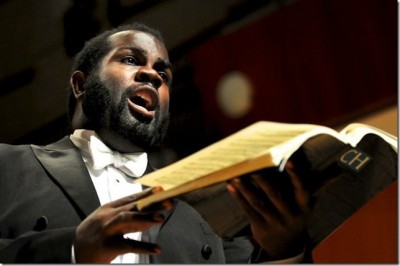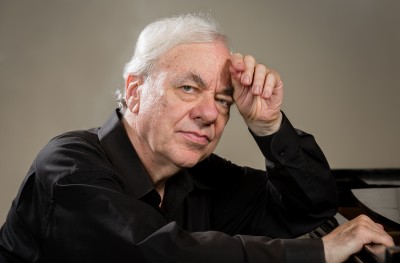
A tribute to Farinelli, and a great American pianist
There once was a time when the best-paid, most famous singers in Europe were men who had been surgically altered before puberty to retain their youthful voices.
These were the castrati, and their heyday was in the 18th century, when the biggest opera composers of the day, particularly George Frideric Handel and Johann Adolf Hasse, wrote for them. The best of them had unusually high voices and tremendous breath control, and they were huge celebrities in their day. This now-barbaric practice died out in the late 19th century, though you can still hear the last of them, Alessandro Moreschi, on early recordings. (Also, the jazz singer Jimmy Scott, who has a rare genetic condition that prevented him from going through puberty, has a voice that essentially is a castrato, but that’s a story for another time.)
The very biggest of all castrati was Carlo Broschi (1705-1782), known by his stage name, Farinelli. His life was the subject of a fictionalized biopic in 1994, but if the plot line of the film was fanciful, the film did capture some of the extravagant spirit that accompanied opera performance in his day. Today, parts written for castrati are sung either by women or male countertenors, and starting tonight, the legacy of Farinelli will be honored in a series of concerts featuring Reginald Mobley, a longtime member of Seraphic Fire, and the Firebird Chamber Orchestra.
Mobley will sing such Farinelli standouts as Caro sposa, from Handel’s Rinaldo, and Tu volesti, lo comprendo, from Hasse’s one-act serenata Sei tu Liddippe, as well as an aria from Handel’s Orlando (Fammi combattere) and Vivaldi’s Giustino (Vedrò con mio diletto). The orchestra under Patrick Dupre Quigley will perform an overture by Vivaldi and a suite based on Don Quixote by Georg Philipp Telemann. Mobley also will sing Nicola Porpora’s setting of the Salve Regina.
The concerts begin tonight at St. Sophia Greek Orthodox Cathedral in Miami, and are followed by concerts in Boca Raton (St. Gregory’s Episcopal), First United Methodist in Coral Gables, All Saints Episcopal in Fort Lauderdale, and Sunday afternoon at All Souls Episcopal in Miami Beach. Call 305-285-9600 for more information.
Richard Goode. Photo by Steve Riskind
Richard Goode: When it comes to American pianists, Richard Goode is the kind of player all his colleagues treat with deep respect. A pianist’s pianist, in other words, a stellar exemplar of the core German repertory, particularly Beethoven and Mozart, whose recitals are an occasion for pianists to dive deep into the wellsprings of this art form.
In luckier years, South Florida audiences get to hear him in recital, and the last time I did, I was particularly moved by his reading of some of the preludes of Claude Debussy. Rarely have I heard this music played with such exquisite color and care, and for me, it was an ideal reading of these pieces, not yet equaled in my concertgoing experience.
So I was delighted to see that there is a Debussy group on his concert Sunday in the Sunday Afternoons of Music series, which will end in May with a concert by the American mezzo-soprano Isabel Leonard. The disappearance of this 33-year-old series is much to be lamented, though one hopes someone else will pick up the mantle and keep it going.
In the meantime, there are the riches of Goode’s concert at UM’s Gusman Hall at 4 p.m. Sunday: The entire Book I of the Debussy Preludes, Schubert’s late Sonata in A (D. 959), and pieces from Leos Janacek’s fascinating cycle, On an Overgrown Path. The Janacek has turned up on more pianist’s programs in recent years, and its uncompromising originality make it fascinating listening.
For more information, call 305-271-7150.
Recent Content
-
Artsarticle ·
-
Artsarticle ·
-
Artsarticle ·

